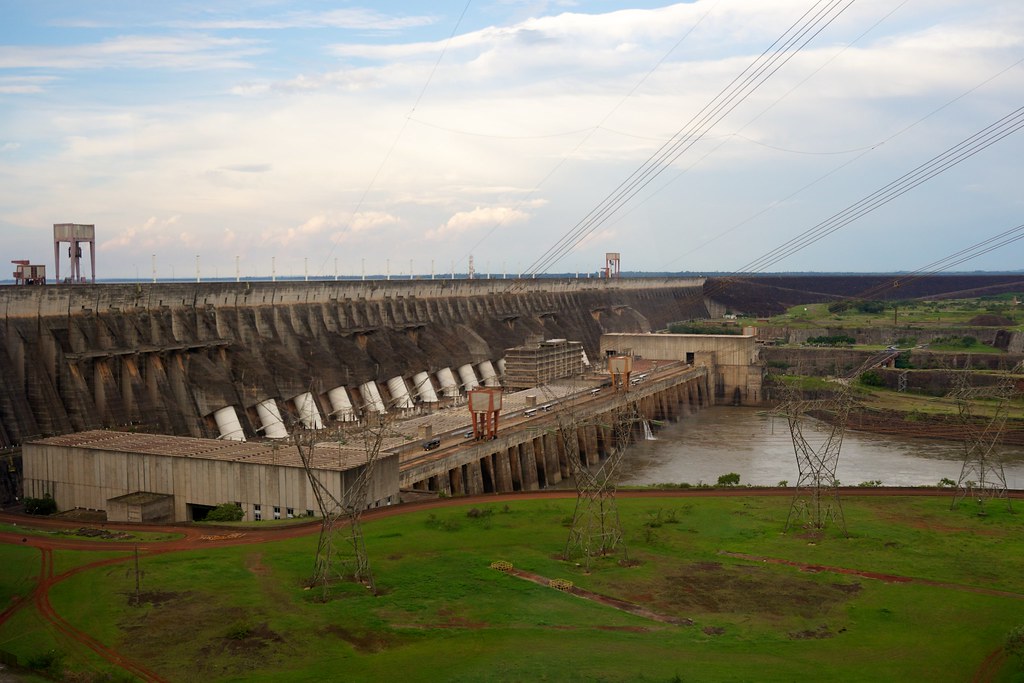
The Itaipu Dam. Image by Nico Kaiser via flickr.com. License: Creative Commons
Paraguay is currently discussing a draft law that would temporarily ban not only Bitcoin mining, but also the storage and trading of cryptocurrencies. One of the justifications is that there are “many illegal Bitcoin farms” and that the government needs to protect consumers from virtual assets.
Paraguay has been in an extremely fortunate situation for several years: thanks to a dam on the border with Brazil, the Itaipú Dam, the country has a rich surplus of renewable energy. This has made it a top location for Bitcoin mining in recent years.
The government actually wanted to regulate the crypto industry in recent years. But an initiative by the Senate in July 2022 failed due to the President’s veto. With a new, radical legislative proposal, the Senate would like to put the industry on ice until regulation is successful. Therefore, mining, but also trading, storing and promoting cryptocurrencies should be banned for an initial period of 180 days.
The problem that the senators are addressing should not be completely dismissed. Mining has grown rapidly in recent years in a legal gray area – and often uses methods that are not entirely legal. According to the draft law, more than 50 cases of electricity theft have already been discovered in Alto Paraná alone; According to energy suppliers, clandestine mining farms cause monthly damage of 500 to 700 million guaraníes, which amounts to around 60 million dollars per year.
The clandestine, semi-legal mining farms are considered an important reason for many power outages in Paraguay. The proposed law cites numerous media reports that businesses and families are being harmed by power outages caused by miners.
In a way it makes sense. As in numerous other countries in the second or third world – such as Ethiopia or Iran – Bitcoin mining demonstrates that these countries often have more energy available, but the power grids are not prepared for the onslaught of miners. This leads to local blackouts even though there would actually be enough electricity, which is not directly the fault of the miners, but they are regularly made a scapegoat.
However, it should be understandable that a country like Paraguay has an interest in the energy mass that is now available to it being invested in building an industry or increasing living standards, instead of being harvested by semi-legal, mostly foreign, mining companies to become.
In Paraguay, Bitcoin miners are once again demonstrating that they act more like locusts than investors. They reap but do not sow; If the mining companies only invested part of their generous income in building the power grid, they would probably be welcome guests. But as long as they just siphon what is cheap and then move on, they are rightly unpopular, as they will leave nothing constructive behind when they leave the country.
The second part of the law is a little less comprehensible – the ban on storing, trading and advertising cryptocurrencies. Here too, the draft law argues that the lack of meaningful regulation leads to various problems, “some of which are already manifesting themselves today”:
The high volatility and high fraud penetration of the scene can cause citizens to lose money; Cryptocurrencies can play a role in money laundering and tax evasion; a crypto market that is too large can destabilize the local financial economy.
It’s probably worth knowing at this point that Paraguay is a major hub for the smuggling of cannabis, cocaine and synthetic drugs in Latin America, as the country borders Brazil, Bolivia and Argentina. Although the economy in Paraguay is growing relatively strongly, the poverty rate remains high; a fraud involving the soccer player Ronaldinho Gaúcho also spilled over into Paraguay; and with a gross domestic product of $40 billion, Paraguay’s economy is much smaller than Bitcoin.
The concerns raised by the senators are not in themselves unjustified. But it would probably make much more sense, instead of a ban – which is hardly enforceable anyway – to use the resources that the country has – massive amounts of cheap energy – to force the miners and the industry itself into a constructive role, similar to El Salvador succeeds. The potential would be there.
Source: https://bitcoinblog.de/2024/04/08/paraguay-moechte-bitcoin-mining-verbieten-weil-es-zu-oft-stromausfaelle-verursacht/


